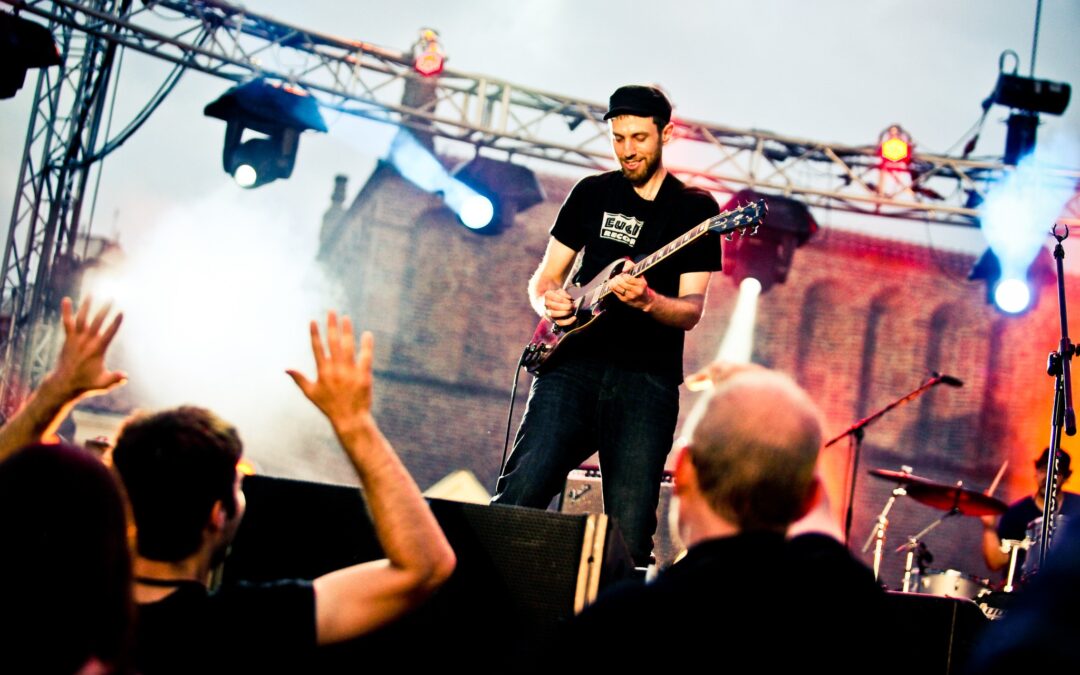Concerts will be allowed to take place in Poland from next week, as the government continues to loosen coronavirus restrictions amid falling infections.
Quarantine rules have also been changed for travellers from outside the Schengen area, while additional fans will be allowed into stadiums for Poland’s warm-up matches before the European football championship.
COVID-19 cases have continued to decline since the peak of the third wave at the turn of March and April. On Monday, the number of new infections was 559, the first time it has been below 1,000 since September. The numbers of Covid-related deaths and hospitalisations have also been falling rapidly.
Amendments published in Poland’s journal of laws last night mean that, from 4 June, “all collective forms of culture and entertainment” will be allowed to take place in outside and indoor spaces. This includes musical and circus performances, which had previously been excluded from the loosening of restrictions.
At both indoor and outdoor concerts, audiences will be limited to half of available seats. If the venue has no seating, then the attendance limit is 250 for outdoor venues (with fully vaccinated people not counting towards that total) or one person per 1.5 m2 in indoor spaces.
At all concerts, those in attendance must cover their mouth and nose and maintain distancing of at least 1.5 metres, while consumption of food and drink is prohibited.
The changes follow widespread protests from musicians claiming that they were being treated unfairly and left unable to make a living.
“We strongly protest against our unfair…exclusion from work, discrimination and destruction of the widespread and very important form of culture that is participation in concerts!” read a joint statement by various industry unions and associations shared by a number of Polish artists this week on Facebook.
“For me it’s ridiculous,” the singer Artur Rojek told Onet. “A week and a half ago we were informed that it was a mistake [that concerts had been excluded from loosening of restrictions] and would be corrected. Time has passed and nothing has changed. That’s why we’re protesting.”
The protests had been backed by figures including Warsaw mayor Rafał Trzaskowski, who wrote: “This is a blow for the entire musical sector! Thousands of people working at these events…all find themselves in a dramatic situation. For them these are further weeks without a livelihood and without real support.”
Popieram protest branży muzycznej i młodych osób przeciwko nierównemu traktowaniu i nieracjonalnym decyzjom rzadu, które uniemożliwiają organizację koncertów na żywo: https://t.co/qy6B6Ls1p8#uwolnickoncerty
— Rafał Trzaskowski (@trzaskowski_) May 24, 2021
The amended government decree also introduces a change to rules on quarantine. Travellers from outside the Schengen area will no longer need to quarantine if they test negative for COVID-19 at the airport upon arriving in Poland before passport control, reports Rzeczpospolita. People who are fully vaccinated are already exempted from quarantine rules.
The decree also adds exceptions on attendance at sporting events for the Polish men’s football team’s matches against Russia on 1 June in Wrocław and Iceland one week later in Poznań, reports Polsat News.
Currently, outdoor sporting events are only allowed to to admit crowds up to 25% of capacity, but for those two games the limit has been increased to 50%. More tickets are now being sold for the matches, which will each be attended by more than 20,000 fans.
Nowe rozporządzenie Rady Ministrów – 50% kibiców na meczach z Rosją i Islandią. Dodatkowe bilety na oba mecze będą jutro w ciągu dnia systematycznie uwalniane dla kibiców do sprzedaży 🇵🇱⚽️. pic.twitter.com/eZPZSL5c1I
— Maciej Sawicki (@Maciej_Sawicki) May 25, 2021
Under the existing timetable for loosening restrictions, cinemas, theatres, outdoor dining and amusement parks have already reopened, while most children have returned to either full in-person teaching or a “hybrid” mix of online and in-person classes.
From this Friday, indoor dining will resume, indoor sports facilities (including swimming pools and gyms) can reopen, outdoor sports can be practised by groups of up to 250 people, and events (such as weddings and first communions) can take place with up to 50 guests.
Main image credit: Ministry of Foreign Affairs/Mariusz Cieszewski/Flickr (under CC BY-ND 2.0)

Ben Koschalka is a translator, lecturer, and senior editor at Notes from Poland. Originally from Britain, he has lived in Kraków since 2005.




















